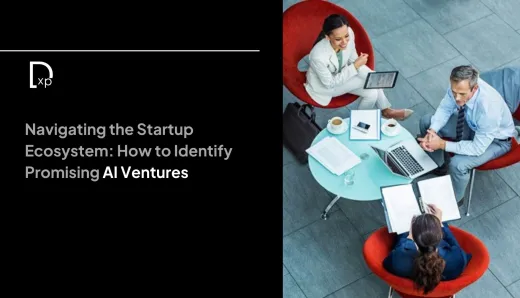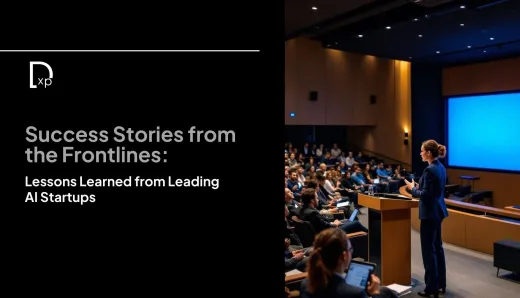The Rise of AI Startups: Trends, Challenges, and Opportunities for Executives

It’s not just your newsfeed—AI really is everywhere right now. From your inbox to your supply chain to your creative team’s brainstorming sessions, artificial intelligence is rapidly shifting how we work and what’s possible. And at the center of it all? A wave of innovative, agile, and wildly impactful companies. Welcome to the era of AI startups.
But let’s get something straight: this isn’t just a “tech trend.” The rise of AI startups is a business transformation moment—one that C-suite leaders can’t afford to ignore. Whether you’re a CEO, CMO, CTO, or just someone with a curious eye on what’s next, the smartest move you can make is learning how to navigate this new landscape with clarity and confidence.
Let’s dig into the trends, challenges, and opportunities that matter most.
Why AI Startups Are Leading the Innovation Wave
There’s a reason so much of the AI movement is being led by startups and not just legacy tech companies. Startups move faster. They experiment more. And they’re not weighed down by outdated systems or layers of decision-making. They can spot a problem, test a solution, and scale it before most enterprises have even scheduled a meeting about it.
This agility is exactly why AI startups are at the forefront of transformation across nearly every sector—healthcare, finance, education, logistics, even creative industries.
And let’s be real: the rise of AI startups isn’t slowing down anytime soon. With accessible tools, open-source frameworks, and investor enthusiasm fueling the fire, these companies are rewriting the rules of innovation—and they’re doing it on their own terms.
Trend 1: Vertical AI Is the New Gold Rush
One of the most exciting shifts happening right now is the move from “general” AI to vertical AI—tools that are custom-built for specific industries. Think AI for radiology. AI for fashion forecasting. AI for supply chain optimization.
Startups are uniquely positioned to lead this wave. Why? Because they’re nimble enough to dive deep into one vertical and build with precision.
For executives, this trend is a game-changer. It means you don’t need to create your own AI division from scratch. Instead, you can partner with or invest in AI startups that are already solving your industry’s toughest challenges with tailor-made solutions.
Trend 2: Human-Centered Design is Winning
Gone are the days when AI tools were built just for engineers and data scientists. The rise of AI startups has brought in a new era of intuitive, human-centered platforms designed for marketers, creatives, sales teams, and operations folks.
What does this mean for your business? Your teams don’t need advanced degrees in machine learning to benefit from it. The best startups are making AI accessible—turning complex algorithms into user-friendly tools that unlock massive productivity without requiring technical fluency.
That’s not just smart tech—it’s smart design.
Challenge: It’s Noisy Out There
Let’s acknowledge the elephant in the room: not every AI startup is a unicorn in the making.
With so much buzz, it can be tough for executives to distinguish between what’s actually useful and what’s just shiny. There’s a lot of noise—and some solutions that look exciting on the surface fall apart under real-world pressure.
The key? Ask deeper questions:
Is this startup solving a real problem?
Do they have traction and happy users?
Is their AI core to the solution, or just a feature?
Getting clear on these questions will help you move from hype to insight—so you can invest your time and resources wisely.
Challenge: Cultural Resistance Within Organizations
One of the biggest blockers to AI adoption isn’t tech—it’s mindset. Even as AI startups continue to innovate, many large organizations struggle with internal resistance. Teams fear job loss. Leaders worry about disruption. And change? Well, it’s rarely comfortable.
But the executives leading the charge in 2025 aren’t avoiding these conversations—they’re initiating them. They’re creating cultures where learning is prioritized, experimentation is celebrated, and change is normalized.
Because the rise of AI startups isn’t just about tech. It’s about transformation. And that starts with people, not platforms.
Opportunity: Build Smarter, Faster, and More Human-Centric Companies
Here’s the beautiful part: you don’t have to build everything yourself.
Executives who see AI startups as strategic partners—not competitors—are unlocking incredible opportunities to grow, adapt, and serve in smarter ways. From improving customer experience to forecasting sales more accurately to reducing internal friction, the possibilities are real, and they're already being proven by bold, early adopters.
And when done right? AI doesn’t make your brand less human—it actually frees your people to do more of what makes them irreplaceable: creating, connecting, and thinking deeply.
What Executives Can Do Today
Let’s make this actionable. If you’re in a leadership role and want to move from theory to practice, here are a few things to explore:
Start conversations with your team about where AI might reduce friction or unlock new value.
Connect with AI startups in your industry—whether through events, demo days, or one-on-one meetings.
Identify low-risk pilot projects where you can test AI tools in real scenarios before going all-in.
Most importantly: lead with curiosity, not fear.
Because the leaders shaping tomorrow’s industries aren’t the ones waiting for a perfect blueprint. They’re the ones learning in public, experimenting with purpose, and moving forward with vision.
Final Thoughts: This is a Leadership Moment
The rise of AI startups is one of the most exciting—and defining—shifts of our time. And executives who embrace it with openness and intentionality will help write the next chapter of business innovation.
So here’s your invitation: Stay curious. Ask better questions. Partner boldly. And remember, the future doesn’t belong to the loudest voice in the room. It belongs to the one who listens deeply, adapts quickly, and leads with heart.




